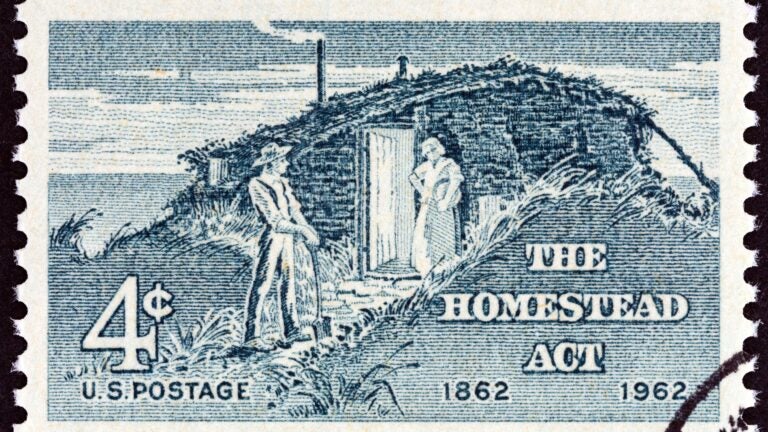Address newsletter
Get the latest news on buying, selling, renting, home design, and more.

It’s not too often that someone offers such substantial protection at a low cost, so homeowners in this housing market should take advantage of it, experts say.
In August, the Massachusetts Legislature signed the Affordable Homes Act, making a number of updates to the state’s housing laws to accommodate rising home costs, including changes to the Homestead Act.
The Homestead Act is a hidden gem in housing legislation, a low-cost, high-reward initiative. Any Massachusetts homeowner can file for a homestead, which will exempt a portion of their property from creditors. All Massachusetts homeowners are automatically granted up to $125,000 in protection without filing for a homestead, but doing so multiplies that protection eightfold.
With the new changes in the Affordable Homes Act, obtaining a homestead now offers protection for up to $1,000,000 in equity/cash value of your home, double the previous limit.
“Everyone should have a homestead,” said Mark S. Einhorn, a partner at Marcus Errico Emmer & Brooks, P.C., a law firm serving condominium and homeowner associations across the state. “Even though you have liability insurance, the typical homeowners policy might have only $500,000 in liability. For most people, they are protecting their most expensive asset. A homestead is another layer of protection.”
Homestead protection is not interchangeable with home insurance. While insurance covers damages and liability, having a homestead provides you with support in times of financial hardship. Filing under the act limits how much of your home can be attached, seized, or sold to pay your debts (with some exceptions). If you rack up credit card debt or are facing a lawsuit for personal injury, but are protected under the Homestead Act, fear not. Creditors can’t claim your primary residence up to $1,000,000.
Get the latest news on buying, selling, renting, home design, and more.
Many assistance programs have certain restrictions, but the Homestead Act is inclusive; various types of households are eligible, including single individuals, married couples, and those with dependents. The act also provides additional protection for certain parties, including those 62 or older or the disabled (regardless of age). Their real property is protected against attachment, seizure, execution on judgment, levy, or sale for the payment of debts. The law also provides protection for spouses who are not listed as owners of the property and for family members who use the home as their primary residence.
Will the homestead declaration protect your home from being taken if you go into a nursing home? The state says: “It depends. Any liens imposed by the Massachusetts Department of Transitional Assistance as a result of Medicaid benefit payments are exempt from the homestead protection. However, as long as the recipient or the spouse of the recipient is alive, the Commonwealth will not look to the residence for reimbursement of Medicaid benefits.”
For more information, go to the secretary of state’s fact page on the act: sec.state.ma.us/divisions/registry-of-deeds/homestead-faq.htm
Buying a home? According to the state, “If you are purchasing your new principal residence, your closing attorney must provide you, as a mortgagor, with notice of your right to declare a homestead protection.” A declaration of homestead is a relatively simple document you file at the registry of deeds in the county where the property is located.
“If the law is offering you protection that’s essentially not going to cost you anything, why would you not do it?” Einhorn said.
The cost? $35. The reward? Peace of mind.
Claudie Bellanger can be reached at [email protected].
Stay up to date with everything Boston. Receive the latest news and breaking updates, straight from our newsroom to your inbox.
Conversation
This discussion has ended. Please join elsewhere on Boston.com